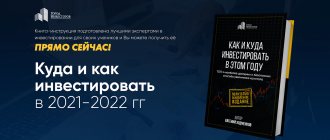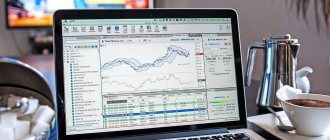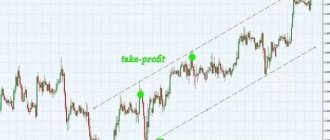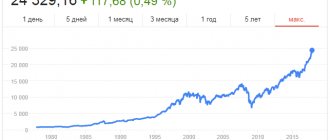Image: Pexels
The stock exchange is far from the only place where investors can make transactions with shares and other assets. In the event that two counterparties want to agree directly on special terms, they can use the so-called over-the-counter (OTC) market.
Today we will talk about how this market works, how the process of making transactions on it differs, and why a stock broker is needed here.
Note
:
The over-the-counter market is a tool for experienced investors who for some reason are not satisfied with the terms of transactions that they can get on the exchange. To make transactions on the over-the-counter market, you will need to open an online brokerage account.
What is traded on the over-the-counter market?
On the over-the-counter market, investors can make transactions with various types of assets: from stocks to all kinds of bonds, derivatives and structured products.
Often there is practically no information about specific financial instruments in open sources. The agreement under which the transaction takes place differs from the standard agreement for the purchase/sale of financial instruments on the stock exchange. In it, the parties agree on conditions such as the purchase or sale price, the type of instrument, as well as possible additions.
Pros and cons of the over-the-counter market
Pros:
- A huge selection of securities, which is much wider than on the stock market;
- You can find cheap, undervalued companies;
- There is no desire to actively trade, since we do not see quotes;
- Often OTC companies can pay good dividends;
- Quotes may become significantly more expensive;
Minuses:
- High commissions for trading turnover;
- Little information about current quotes;
- Low liquidity, which means there is no opportunity to quickly sell during periods of panic;
- The tax benefit is valid only when holding securities for more than 5 years, and not 3 as in the regular section of the exchange;
- Since the broker's commission is high, it makes sense to buy shares only for large amounts (at least 100 thousand rubles), otherwise the commission will be high;
- Quotes are indicated in dollars;
Related posts:
- What are the differences between the exchange and over-the-counter markets -...
- Municipal bonds - features, is it worth...
- Foreign exchange market, participants, nuances of trading - a detailed overview
- The structure of the stock market - an overview
- Demo account on the markets - detailed description
- Active and passive investing - detailed description
- Market economy - what it is, properties and characteristics
- Buy and Hold Strategy - Ideal for Investors
Risks
The structure of OTC markets involves a significantly higher degree of risk.
In particular, there are counterparty risks - that is, the likelihood that one of the parties to the transaction will go bankrupt before fulfilling its part or will not be able to do so in the future. The opacity of the OTC market also contributes to increased risk levels. For example, during the US mortgage crisis in 2007-2008, many CDO (Collateralized Debt Obligation) and CMO (Collateralized Mortgage Obligations) derivatives were traded exclusively on the OTC market.
Banks issued CDOs based on bad home loans made to people who couldn't pay them or made a minimum down payment. With the development of the crisis in the US real estate market, such financial instruments became toxic, and holders en masse tried to get rid of them. However, liquidity falling almost to zero made solving this problem extremely difficult.
comparison table
| Basics for comparison | Over-the-counter ( OTC) | Exchange |
| Meaning | The over-the-counter or OTC market is a decentralized dealer market in which brokers and dealers transact directly through computer networks and telephone calls. | An exchange is an organized and regulated market where shares are traded between buyers and sellers in a secure, transparent and systematic manner. |
| Market maker | Dealer | The exchange itself |
| Used | Small companies | Well-established companies |
| Physical location | No | Yes |
| Trading hours | 24×7 | Exchange opening hours |
| Stock | Unlisted shares | Shares listed on the stock exchange |
| Transparency | Low | Relatively high |
| Contracts | Individual | Standardized |
Why do you need a broker?
To avoid such situations, investors need to carefully calculate possible risks or attract specialists who can do this.
This is precisely the role of the stock broker in conducting such transactions. Within the over-the-counter market, a company can be both a broker and a settlement center, helping to assess all risks. For example, ITI Capital provides support services for over-the-counter transactions in shares, Eurobonds, forward or option contracts, structured products, and repos. We carry out transactions of any complexity with a large number of financial instruments.
What is the over-the-counter securities market, what is the OTC exchange?
The over-the-counter market is a platform where investors enter into transactions directly without a broker, who on regular exchanges acts as an intermediary between the selling trader and the buying trader. OTC or otc market is its other name.
Such a system carries certain risks, which we will discuss below. The over-the-counter securities market can be organized or unorganized. Its essence comes down to long-term investing and receiving dividend income in the face of rare changes in quotes.
In an organized over-the-counter market, the orders of counterparties are combined - this shows similarities with the usual exchange where there are brokers. The only difference is that there is no guarantee of protection of investor funds, but you can withdraw much more money from here than from a regular exchange. By the way, the international over-the-counter forex market is organized.
In an unorganized market, there are no clearly regulated requirements for the subject of transactions. Here you have to negotiate everything yourself. Naturally, the risks here are higher, and there is more fraud.
Types of OTC derivatives
Derivatives, or derivative financial instruments, are a type of security whose value depends on one or more underlying assets or derivatives.
The most common underlying assets consist of stocks, bonds, currencies, interest rates, commodities and market indices.
An OTC derivative is traded between two clients with minimal intermediation and oversight.
Trading OTC derivatives can provide protection against possible losses associated with price movements. Therefore, derivatives traders are also called hedgers or speculators. As well as hedging (reducing risk from price fluctuations), derivatives trading can also allow trading firms to negotiate better terms.
The following types of OTC derivatives exist.











